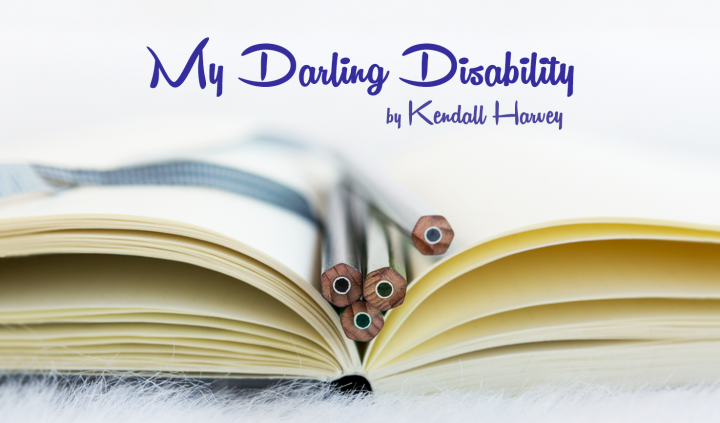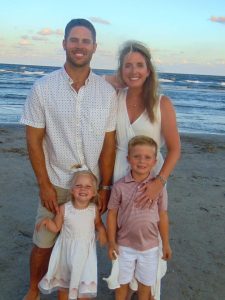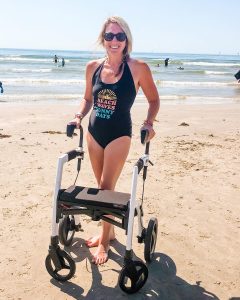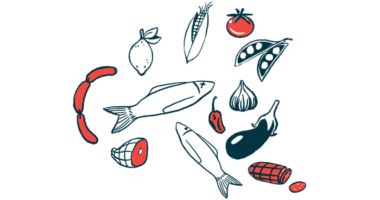When Friedreich’s Ataxia Gives Me the Disabled Blues

Last week, my husband and I decided it was time for a change of scenery from our COVID-19 quarantine in Austin, Texas, and we rented a beach house on the coast for a week. We had worked out all of the logistics and packed everything so we could remain safely quarantined in a different, sunnier location.
While we were eating dinner the night before we were set to leave, my sweet, old dog, Boomer, suffered a medical emergency. He had an ulcer in his eye and it painfully ruptured. We rushed him to the emergency vet, not knowing what to expect.
Fortunately, we were told we should be able to avoid surgery or eye removal by following a strict medication and eyedrop schedule. The doctor warned us that the medications may make Boomer extremely lethargic and dependent on assistance for just about everything.
This new intensive regimen was too much for our previously arranged pet sitter, so it looked like either my husband or I would have to stay home to give him the round-the-clock care he needed. I volunteered to stay. As we discussed the logistics, I was forced to realize that I am physically unable to do what Boomer needed.
Because of my Friedreich’s ataxia (FA) symptom progression, I use a walker full-time. This renders me unable to carry a lethargic, 40-pound dog outside to use the restroom and makes it extremely difficult to get on the ground and pin him down to deftly administer eyedrops.
So it looked like I would go to the beach as planned and my husband would stay home. As I started thinking through how that would work, I realized I would also be physically unable to do what my kids need.
Even with my walker, I can’t walk into the ocean and play in the waves with them. I can’t scoop them up and rush them to a towel when they get salt water in their eyes. I can’t carry beach chairs, umbrellas, coolers, towels, and sand toys down to our spot.
I felt so disabled at that moment. I was so discouraged that I couldn’t physically do what any of my dependents needed me to do. We needed my husband to be two places at once: at home taking care of our dog, and on the beach taking care of our kids. And I was not really needed anywhere. It was a dark and sobering realization.
Around midnight, we got in touch with a live-in pet sitter who could confidently and competently care for Boomer. We were able to continue with our trip as planned.
It took a bit for me to snap out of the blues that followed that whirlwind of disability realization. It came down to this: I can let FA take my abilities AND my joy, or I can just try my best to focus on the good. I choose to do the latter.
My mentor, Julie Richard, often says, “Control what you can; make peace with what you can’t.” I can’t control what FA does to my body. I can’t control how my disability affects my ability to be a caretaker to my loved ones. Yet, I can control how I respond. I can participate in the fun by cheering my kids on while they boogie board for the first time. I can sit in the sand and build silly sandcastles with my family. I can dole out snacks and apply sunscreen. I may not have been as active as a participant as I would have liked, but I am at peace with that. I did my best, I tried to help when and where I could, and I had fun on the beach with my family!
***
Friedreich’s Ataxia News is strictly a news and information website about the disease. It does not provide medical advice, diagnosis or treatment. This content is not intended to be a substitute for professional medical advice, diagnosis, or treatment. Always seek the advice of your physician or another qualified health provider with any questions you may have regarding a medical condition. Never disregard professional medical advice or delay in seeking it because of something you have read on this website.The opinions expressed in this column are not those of Friedreich’s Ataxia News or its parent company, Bionews Services, and are intended to spark discussion about issues pertaining to Friedreich’s ataxia.









Leave a comment
Fill in the required fields to post. Your email address will not be published.